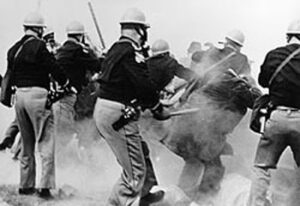A BGES Civil War Field University Program
With Norman Dasinger
June 12-15, 2025; from Montgomery, AL
 The State of Alabama has been known by many names: The Cotton State, The Yellowhammer State, The Lizard State, The Camelia State, The Heart of Dixie, and The Heart of the South. Perhaps the 1934 song “Stars Fell on Alabama,” sung by Ella Fitzgerald, Louis Armstrong, and later by Frank Sinatra, best captures the sentiment of this beautiful yet troubled state. Inspired by a meteor shower that lit up Alabama’s skies while two lovers dreamed of their future, the song reflects the state’s rich history—a blend of competing and clashing narratives.
The State of Alabama has been known by many names: The Cotton State, The Yellowhammer State, The Lizard State, The Camelia State, The Heart of Dixie, and The Heart of the South. Perhaps the 1934 song “Stars Fell on Alabama,” sung by Ella Fitzgerald, Louis Armstrong, and later by Frank Sinatra, best captures the sentiment of this beautiful yet troubled state. Inspired by a meteor shower that lit up Alabama’s skies while two lovers dreamed of their future, the song reflects the state’s rich history—a blend of competing and clashing narratives.
Alabama takes its name from the Alibamu people, ancestors of the Choctaw, Coushatta, and Echota Cherokee tribes. The state is also the birthplace of many notable Americans, including country music legend Hank Williams, Sr., heavyweight boxing champion Joe Louis, activist and educator Helen Keller, boxing great Evander Holyfield, “Friends” actress Courtney Cox, Olympic runner Jesse Owens, and civil rights activist Rosa Parks.
Alabama’s historical significance is immense. Montgomery, the state capital, was the first capital of the Confederacy. Selma served as a major Confederate arsenal in the Deep South, while Mobile operated as the Confederacy’s last significant Gulf Coast port open to commerce during the Civil War. Alabama also claims 39 Confederate generals or admirals including Raphael Semmes, Thomas Crittenden, James Deshler, John Gregg, Andrew Jackson Hamilton, Daniel McCook, Jr. (not “that” Dan McCook), Edward A. O’Neal, and Edmond W. Pettus. Pettus’s name later became infamous when the Pettus Bridge outside Selma was the site of Dr. Martin Luther King, Jr.’s historic “Bloody Sunday” march in a different kind of war.
The road from Montgomery to Selma played a significant role in two defining chapters of American history: the Civil War of the 1860s and the Civil Rights Movement of the 1960s. This tour delves into both eras while also exploring colonial history, the American Revolution, the Indian Wars, Texas Independence, and the stories of influential figures from both the modern and antebellum periods. The action-packed program will include visits to Selma, Montgomery, Marion, Lowndesboro, and Cahaba, among others.
Alabama is a place of striking contrasts and diverse cultural heritage—national, regional, local, black, white, and Native American. Each town and region tells competing stories of antebellum and Civil War history alongside the Civil Rights struggles of the mid-20th century. This tour promises to bring you in touch with previously untapped places, scenes, and surprises at every turn. Join historian and Alabamian Norman Dasinger as he retraces the important steps across Civil War and Civil Rights–era Alabama in this unique tour!
Itinerary
Thursday, June 12, 2025
Meet Norman at our headquarters hotel at 6 p.m. for a one-hour orientation program and an overview of the sights and events that your tour will cover. Here, your program materials will be handed out (or the next morning if you are late arrival).
Dinner is on your own.
Friday, June 13, 2025
Departing the hotel at 8 a.m., we will spend today exploring Montgomery, a cty steeped in American history. Montgomery was home to the first Capitol of the Confederate States of America, where the Confederate Government was formed. It was here that Rosa Parks made her historic stand by refusing to give up a seat on a bus, and it was the destination of the iconic Selma to Montgomery March. Controversial Alabama Gov. George Wallace held court here, and notable figures such as Stephen Douglas, Jefferson and Varina Davis, Martin Luther King, Jr., and William Lowndes Yancey all left an indelible mark on the city. These are just a few of the personalities we will discuss.
Our itinerary includes a number of sites associated with the formation of the Confederate government. We will also pay our respects at Oakwood Cemetery, the final resting place of Hank Williams, Sr. As we journey through time, we will travel back to the 1860s to examine the Civil War era, then move forward to the 1960s to follow the Civil Rights Walk of Freedom, covering every significant event and influential figure along the way.
Lunch is included, but dinner is on your own.
Saturday, June 14, 2025
Departing the hotel at 8 a.m., we will head to Selma, beginning with the April 1, 1865, Battle of Ebenezer Church. During this engagement, Federal Maj. Gen. James Wilson, commanding approximately 9,000 cavalrymen, forced back Confederate Maj. Gen. Nathan B. Forrest, who led a much small force estimated between 1,500 and 5,000, including a large local militia. Forrest played a prominent role in the battle, sustaining a saber wound from Capt. James D. Taylor. In response, the famed Confederate cavalryman shot and killed Capt. Taylor with a pistol—marking the last of 33 Union soldiers killed by Forrest during the war.
Our journey will continue to Selma, home to the vast arsenal and industrial facilities that once supplied the Confederate war effort. Following the Battle of Selma on April 2, 1865, Wilson’s Federal troops destroyed the arsenal, navy foundry, warehouses, factories, and much of the city in a wave of looting and devastation.
Selma is a town deeply steeped in history, though it has faced significant economic decline in modern times. Figures such as Abraham Lincoln, Nathan Forrest, William J. Hardee, Martin Luther King Jr., and the James Brothers highlight some of the city’s personalities. The city is also renowned for the Edmund Pettus Bridge, site of the infamous “Bloody Sunday” during the Civil Rights Movement, as well as its grand Antebellum mansions that still grace the city’s landscape. These highlights, among others, will be covered in this busy first day of field study.
We will conclude the day at the site of Alabama’s first Capital: Cahaba. Today, it is a ghost town with some amazing sites. We will also see a Confederate POW Camp located along the Alabama River.
We will return to the hotel by 5 p.m. Lunch is included, but dinner is on your own.
Sunday, June 15, 2025
Departing the hotel at 8 a.m., we will travel to Marion and Lowndesboro. The little village of Lowndesboro will feel like going back in time to 1855, with many of the houses reflecting the period’s history. Interestingly, Lowndesboro is also notable for coming up with the name “Blank Panthers,” adopted by Huey Newton.
From there, we proceed to Marion, where the history of this little town abounds. Marion has been shaped by influential figures such as Sam Houston, General Forrest, Coretta Scott King, and Stonewall Jackson. Marion is also where the Civil Rights Movement truly began, marked by the tragic killing of Jimmy Lee Jackson. The town itself is named after Francis Marion, the “Swamp Fox,” a hero of the American Revolutionary War.
Continuing in the theme of comparisons and contrasts, Marion is birthplace of three notable institutions: Judson College, a private Baptist college for women; Marion Military Institute (MMI), the nation’s oldest Junior College Military school which once was for only white males and today is known as Samford University; and Lincoln Normal School for blacks, forerunner to today’s Alabama State University in Montgomery.
We will finish and return to the hotel by 5 p.m. Lunch is included.
About the Faculty
 Norman Dasinger lives in Rainbow City, Alabama. He is the business owner of a real estate title company. He has been involved in Civil War history, preservation, and interpretation since 1985. He is a member of the SCV, SUVCW, and SAR. He has led Civil War tours on various sites in Alabama, Georgia, and Tennessee since 2004. Norman has substantial knowledge of the history of these three states, including the Civil War, pioneer, Native American, and Civil Rights periods. He has two grown sons.
Norman Dasinger lives in Rainbow City, Alabama. He is the business owner of a real estate title company. He has been involved in Civil War history, preservation, and interpretation since 1985. He is a member of the SCV, SUVCW, and SAR. He has led Civil War tours on various sites in Alabama, Georgia, and Tennessee since 2004. Norman has substantial knowledge of the history of these three states, including the Civil War, pioneer, Native American, and Civil Rights periods. He has two grown sons.
Hotel Information
This program will be headquartered at Hampton Inn Montgomery South Airport, 60 Wasden Road, Hope Hull, Alabama, 36043; 324-280-9592. The BGES special hotel rate is $129 plus tax, with a rate cut-off date of May 5, 2025. When you call the hotel, be sure to tell them that you are booking your room with the group “Blue and Gray Education” to get the special rate.
The hotel does not have an airport shuttle, but Uber and taxis are readily available, and there are several fast-food restaurants near the hotel.
Transportation
The servicing airport is Montgomery Regional Airport (MGM), 5 miles from the hotel.
Recommended Reading
You will receive maps and materials that will meet your onsite requirements. The following books are suggested to enhance your readiness for the program.
- Jones, Robert C. Alabama and the Civil War: A History & Guide. Charleston, SC: The History Press, 2017.
- Jones, Robert C. A Guide to Civil War Alabama. North Charleston, SC: Createspace Independent Publishing Platform, 2015.
- McIlwain, Christopher Lyle. Civil War Alabama. Tuscaloosa, AL: University of Alabama Press, 2016.
- Morris, Aldon D. The Origins of the Civil Rights Movement: Black Communities Organizing for Change. New York, NY: Free Press, 1986.
Registration
The registration period for this tour has closed. Please check out some of our other tours that may interest you or contact us to inquire about a future offering for this tour.
To register by mail or fax, download this printable registration form: Civil War and Civil Rights.
Questions? Need more information? Please contact us.
You must be logged in to post a comment.